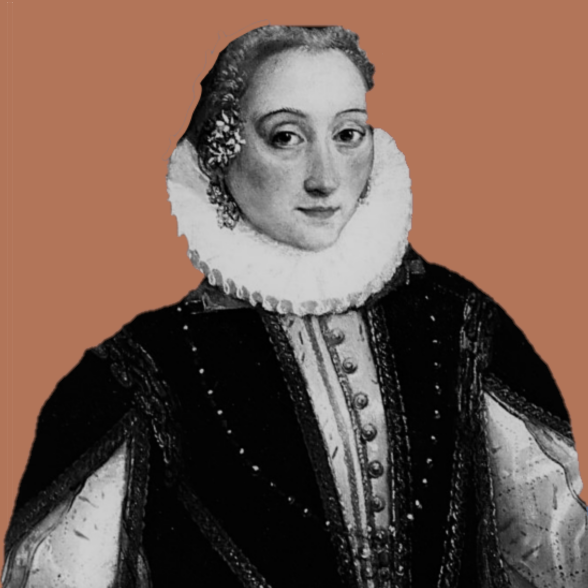
Before #ReformationDay next week, I'll be sharing 4 profiles of Reformation women! This year the focus will be why women were either not able to be involved in the Reformation or why their involvement was later forgotten in our retelling of these events.
The 4 women will be...
The 4 women will be...
Olympia Morata died #OTD in 1555. She grew up a child prodigy specialising in the classics, and later became an accomplished Renaissance scholar. But her involvement in the Reformation inadvertently led to the destruction of her work and the ending of her life.(1/12) 

Olympia grew up in the Italian court of the Duke of Ferrara. During her 20s, Olympia began studying the works of Calvin and Luther and after her father's death in 1546 Olympia returned to court aligning with the Reformers. (2/12)
At this time the Duke of Ferrara was beginning to target the Reformers in his court. Soon Olympia was the victim of a double-agent in the Duchesses court. Olympia was arrested and forced to leave the court and then Italy altogether. (3/12)
With her husband Andrea, Olympia began the long journey to Germany, hoping to reach safety with other Reformers. Violence between the Protestants and the Catholics was growing. The couple were unable to stay anywhere long, but, in 1554 they reached Schweinfurt in Bavaria. (4/12)
However, soon after their arrival, at the orders of Cardinal Albert of Brandenburg the town was set alight and burnt to the ground. Olympia and Andrea escaped with nothing but the clothes they were wearing. (5/12)
All of Olympia's research and writings were lost in the fire.
The couple were forced to make the 10-mile journey to Heidelberg. En route, Andrea was arrested and Olympia contracted "malaria". (6/12)
The couple were forced to make the 10-mile journey to Heidelberg. En route, Andrea was arrested and Olympia contracted "malaria". (6/12)
By the time they reached Heidelberg, it was clear Olympia wouldn't recover. She spent the last months of her life studying, writing and corresponding with other Reformers and Italian exiles. Her work that survived comes primarily from this period. (7/12)
Her writings show that she was deeply concerned with the spiritual welfare of most of Europe, but especially Italy. Whilst she was also frustrated by infighting amongst the Reformers on what she considered to be secondary issues.
Olympia died in 1555 aged 29. (8/12)
Olympia died in 1555 aged 29. (8/12)
After her death, her husband and friends collected all of her work that they could find and published it.
(For an English translation check out Holt Parker, 'The Complete Writings of an Italian Heretic') (9/12)
(For an English translation check out Holt Parker, 'The Complete Writings of an Italian Heretic') (9/12)
Because our retelling of the Reformation tends to focus on theological debates and developments, with references to specific bursts of violence, Olympia is often excluded. But Olympia is a tragic example of what the violence during the Reformation cost.(10/12)
In the case of Olympia, the violence made her an exile, destroyed her work, and caused her to contract a disease that ultimately took her life. Indeed, the early end of her life meant the Reformation as a whole lost a talented and wise voice in Protestant theology. (11/12)
So, let's remember her today on the anniversary of her death and in the led up to #ReformationDay.
You can read more about Olympia's life at #NotJustWivesAndMothers here: notjustwivesandmothers.wordpress.com/2020/08/08/oly… (12/12)
You can read more about Olympia's life at #NotJustWivesAndMothers here: notjustwivesandmothers.wordpress.com/2020/08/08/oly… (12/12)
• • •
Missing some Tweet in this thread? You can try to
force a refresh



